Apply for Your F-1 Visa
Once you receive your acceptance materials, including your I-20 form, schedule your F-1 visa interview at the nearest U.S. embassy or consulate. We recommend that you read the following information prior to attending your visa interview, as well as visit the "Study in the States" website.
Step 1: Receive and Review Acceptance Materials
Your admission packet will include your acceptance letter and I-20 form. Review all of the documents in your acceptance packet and ensure that the information is correct, including the spelling of your name, your birth date, your intended major, and your program dates. Don't forget to sign the bottom of your I-20 form. If you are younger than 18, your parent or guardian must also sign the form.
Step 2: Pay the SEVIS I-901 Fee
You can pay the I-901 fee online. Print the receipt and keep it with your I-20 form. If you have questions about the I-901 fee, please read the SEVP FAQs page.
Step 3: Schedule Your Visa Interview
Except for Canadian citizens, all international students must have an F-1 visa to study in the U.S. Find your nearest U.S. embassy or consulate and complete the DS-160 to schedule your F-1 student visa interview. Interview wait times vary by embassy, so check your estimated wait time in advance. You may apply for a visa up to 365 days before the start date of your academic program.
Step 4: Prepare for Your Visa Interview
Bring your passport, I-20 form, financial documents, and acceptance materials with you to the interview. Interviews are brief, and consular officers usually make a decision based on impressions formed during the first few minutes. The officer may ask about your intentions or prospects for future employment, family or other relationships, educational objectives, your social media accounts and activity, and long-term plans in your home country. Speak English if possible, listen carefully to the question asked, keep your answers short and to the point, be familiar with Seattle Colleges and how it fits into your career plan, and be prepared to answer why you want to study a particular program in the United States.
During your visa interview, you must demonstrate to the consular officer that you:
- Have strong ties to your home country and intend to return home after your studies in the U.S.
- Have sufficient funds to pay for your financial needs while you are studying in the U.S., including tuition, health insurance, housing and travel expenses, etc.
- Have legitimate intentions to study full-time and gain education and training that will be useful in your home country.
Your visa application may be initially refused for further background checks. A refusal is not a denial. You may need to wait up to a month or more for a decision.
If you are denied a student visa, do not be discouraged. Many students do not get a visa the first time, and it can sometimes take two or three tries.
After a visa denial, we recommend that you take the following steps:
- Do not argue with the officer. Politely ask for a written explanation of the refusal.
- Ask the officer what documents/information you will need to apply again.
- If you have not done so, read our recommendations for preparing for the interview.
- Review the information you submitted. Make sure your documents are in order.
- If the information you received is unclear, contact your agent or our office.

